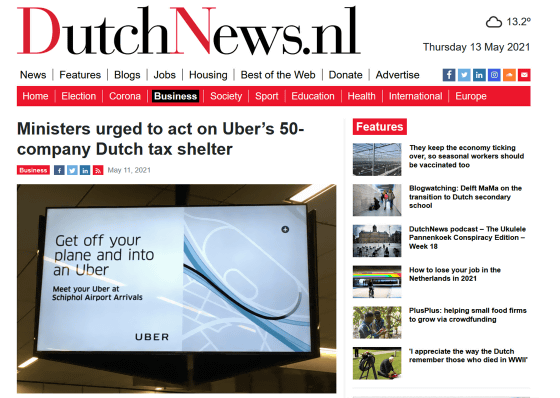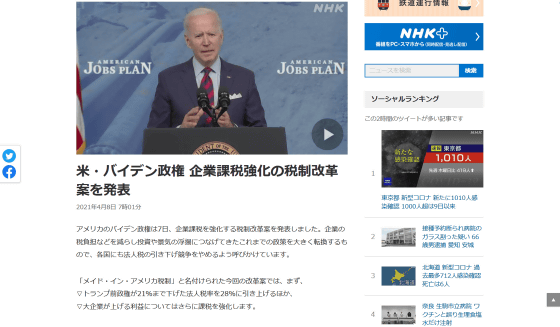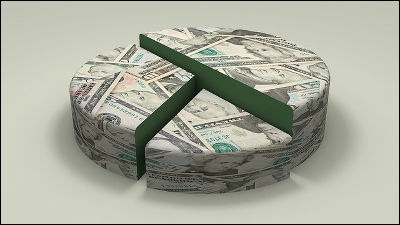Uber uses a network of 50 affiliates to escape taxes around the world

Uber, a ride-hailing and food delivery service provider, is a multinational company with operations in different countries around the world. However, according to a survey by the
Een goedkoop ritje? De Groene Amsterdammer
https://www.groene.nl/artikel/een-goedkoop-ritje
Champions League of tax avoidance:'Uber used 50 Dutch shell companies to dodge taxes on nearly $ 6 billion in revenue, report says | CICTAR
https://cictar.org/champions-league-of-tax-avoidance-uber-used-50-dutch-shell-companies-to-dodge-taxes-on-nearly-6-billion-in-revenue-report- says / says /
Ministers urged to act on Uber's 50-company Dutch tax shelter --DutchNews.nl
https://www.dutchnews.nl/news/2021/05/ministers-urged-to-act-on-ubers-50-company-dutch-tax-shelter/

According to CICTAR, Uber made operating profit of $ 5.8 billion (about 640 billion yen) in all parts of the world except the United States and China in 2019, but this profit was sent to a subsidiary established by Uber in the Netherlands. It is said that it is. In the Netherlands, there is a network of 50 privately held companies established by Uber, and by using this subsidiary network, operating income of 5.8 billion dollars will eventually be 4.6 billion dollars (about 500 billion yen). ) Has been reduced to an operating loss, CICTAR points out.
Uber's network, centered on a Dutch subsidiary, was created in 2019 by selling intellectual property rights such as logos and apps from a Bermuda subsidiary to a Dutch subsidiary. The sale of intellectual property rights is covered by a loan of 16 billion dollars (about 1.75 trillion yen) from a subsidiary in Singapore, and the subsidiary in the Netherlands is 1 billion dollars (about 1.75 trillion yen) annually by including interest payments. The taxable income (110 billion yen) can be reduced over the next 20 years.
Uber is reducing taxable income by sending revenues generated around the world to a network of subsidiaries created in the Netherlands, and subsidiaries established in each country also pay large amounts of intellectual property to the government. I'm reducing taxes I pay. According to CICTAR calculations, the Australian government has lost $ 30.5 million in tax revenue from Uber's tax escape network and has not paid $ 492 million in taxes worldwide. is.
CICTAR also discovered that several Uber subsidiaries in the Netherlands have not submitted financial reports that they should have. In addition, it was found that less than one-third of the taxes levied on multinational corporations are paid in India.

'Uber has stepped up their tax avoidance approach, creating a more useful and viable tax system in the Netherlands to prevent future tax burdens,' said Jason Ward, senior analyst at CICTAR. This is a tax avoidance champion league, 'he said, blaming Uber's system for tax avoidance.
Uber's efforts to avoid taxing hundreds of billions of dollars in profits highlight the problem that governments are lagging behind in tax evasion by multinational corporations with cross-border business-to-business transactions. As a way to solve this problem, Mr. Ward argued that global tax reform was needed to ensure that multinationals pay taxes based on 'countries that actually made a profit.'
Ward also points out that the Dutch government, where Uber has built a network of tax escapes, should also take action against Uber. 'Given Uber's artificial sale of intellectual property rights from Bermuda to the Netherlands to create this massive global tax shelter, the Dutch government justified a series of transactions affecting the world. We need to investigate thoroughly, 'Ward claims. Furthermore, considering the scale of banking transactions through the Netherlands, it is necessary to consider whether Uber should be regulated as a financial institution.
In recent years, tax evasion by large corporations has become a global issue, and in April 2021, President Joe Biden of the United States announced a tax reform plan to strengthen corporate taxation. Plans have been put forward to introduce a universal minimum tax rate to prevent tax evasion by multinational corporations and to strengthen penalties for tax avoidance.
U.S. Biden Administration Announces Tax Reform Plan to Strengthen Corporate Taxation | U.S. President Biden | NHK News
https://www3.nhk.or.jp/news/html/20210408/k10012962181000.html

Related Posts:
in Note, Posted by log1h_ik







